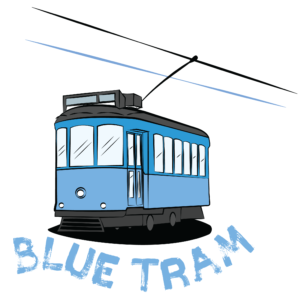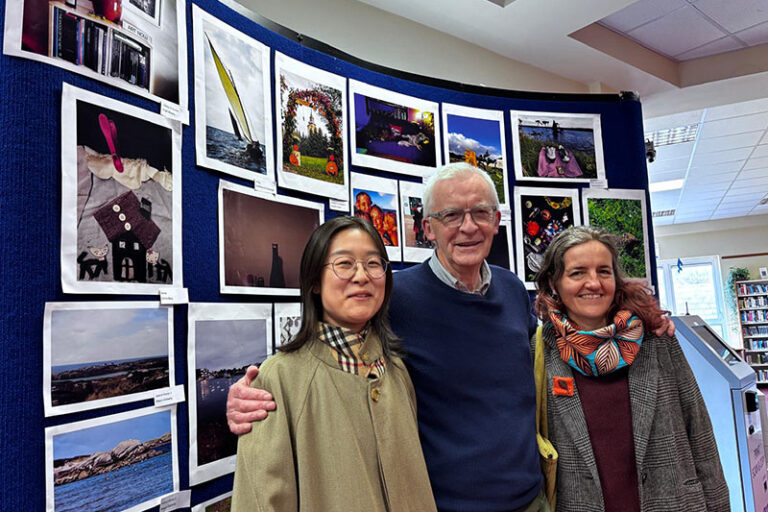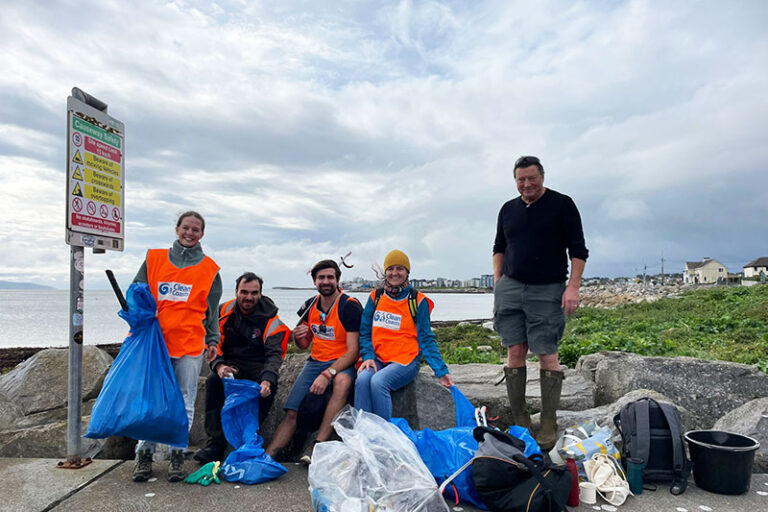This post is also available in:
 polski (Polish)
polski (Polish)
And everything is happening now. Only once.
Just look and listen to not miss anything from this moment.
-sings Jerzy Stachura Junior at the 24th Nation Poets’ Meeting “White Locomotive” in Łazieniec, in Poland. The red, yellow, and purple light of a September evening illuminates the stage and poet Edward Stachura is standing on the road with a bicycle next to his mother. Life, happening here and now, and gleams.
Daria Danuta Lisiecka wears a beautiful dress and welcomes all the guests warmly, with a sparkle of incessant passion in her eyes. Joyful, absorbed in poetry, recognizing each other, amazed, surprised, we become anew.
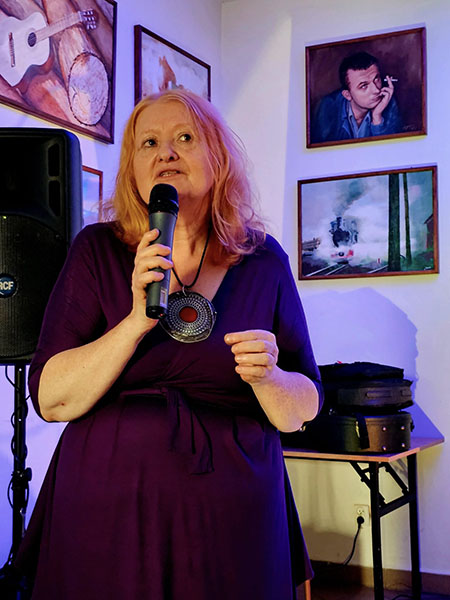
Photo by Anna StanekThe poems of Nora Iuga, a Romanian poet now in her 90s, are sharp as rocks, free but lonely, sometimes bleeding, but not crying. They are strong. Poet and classical philologist Enormii Stationis is translating them from Romanian to Polish in competition for publication by European Poet of Freedom. On the meeting he presents us with the freshest poems, before the book.
The double bass didn’t fit in the car. However Ernest, Łukasz, and Jakub from the trio Attack of the Mugatu, usually use the unusual properties of the electric guitar, bass guitar, and cello. They use musical strings, drumsticks, and even body expression, which plays a significant role in their musical experiment.
For me, it’s a flight to the deeper layers of myself. I hear the chirping of a cricket emanating from the electric guitar. Instead of bass, the river splashes. An old tree creaks in the forest.
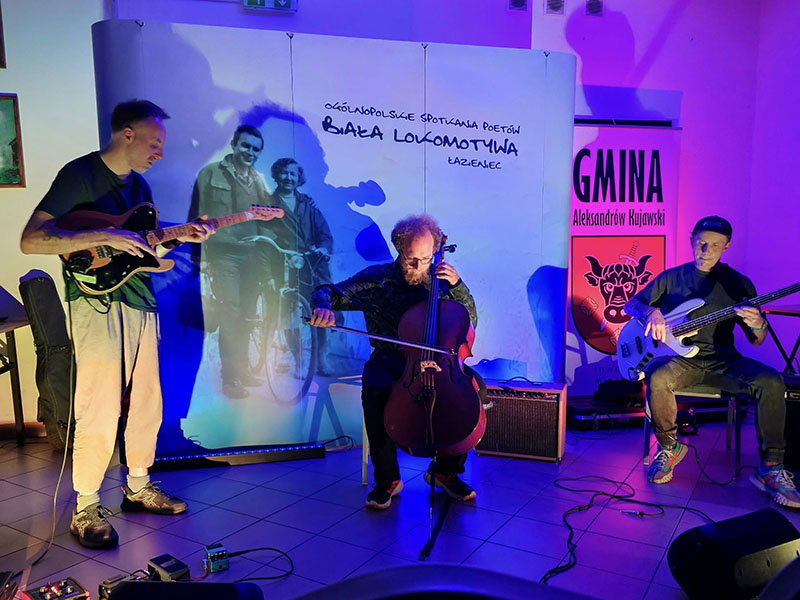
Photo by Anna StanekI travel to Łazieniec with a poem on a manifest banner for Edward Stachura, passing through Warsaw and Łódź. Along the way, I present it at the train stations he was. Finally, I sit on a bench under a walnut tree with Daria, next to Stachura’s family home.
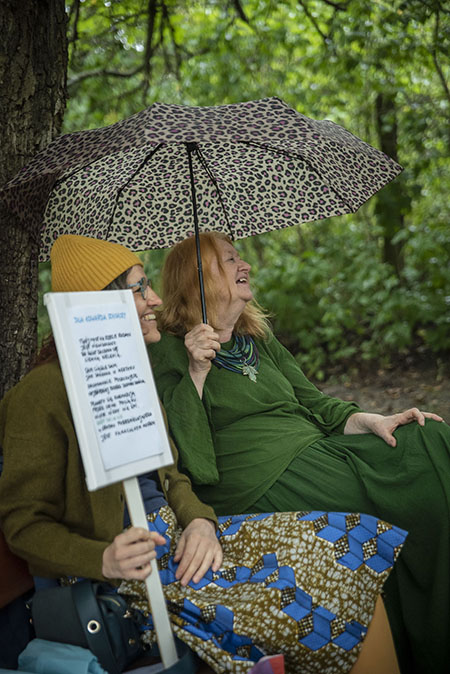
Photo by Anna K. AbramowiczI talk about my poetic manifestations, poetry in Ireland, and read my latest poems. The words are getting wet, the letters on the banner are running a little. Around me, other poets are sitting under colorful umbrellas. And the rain is connecting Galway and Łazieniec. It naturally blurs all borders.
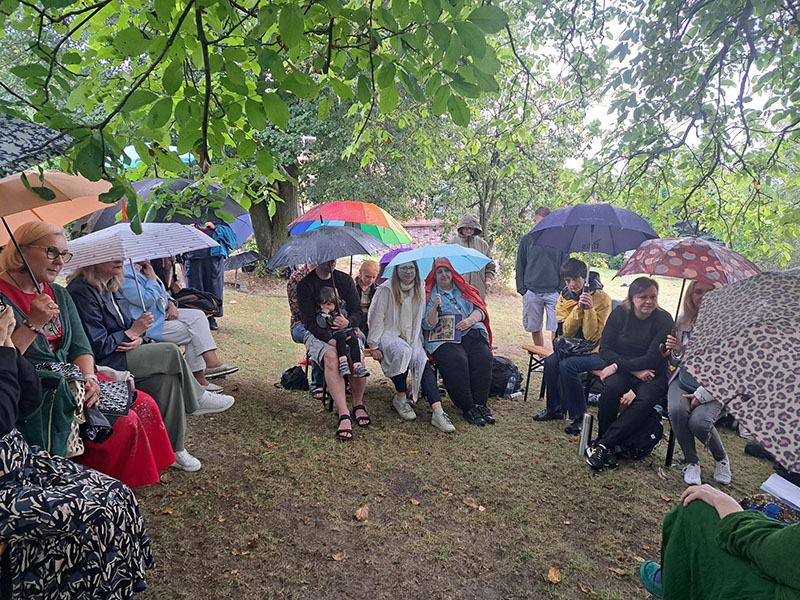
As the rain begins to fall even stronger, the Tribune of Free Poetry – “Strophes for Sted“, where everyone can read a poem moves to a nearby local community center. Later we take our previously laminated poems and tie them with blue ribbons to a net next to the large locomotive at Zagubin station. It’s an extraordinary ritual for all of us.
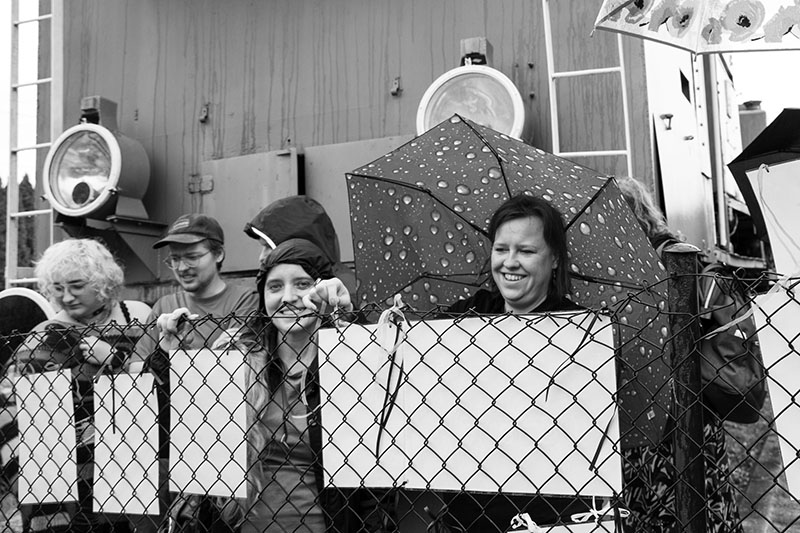
Photo by Ola Gardysiak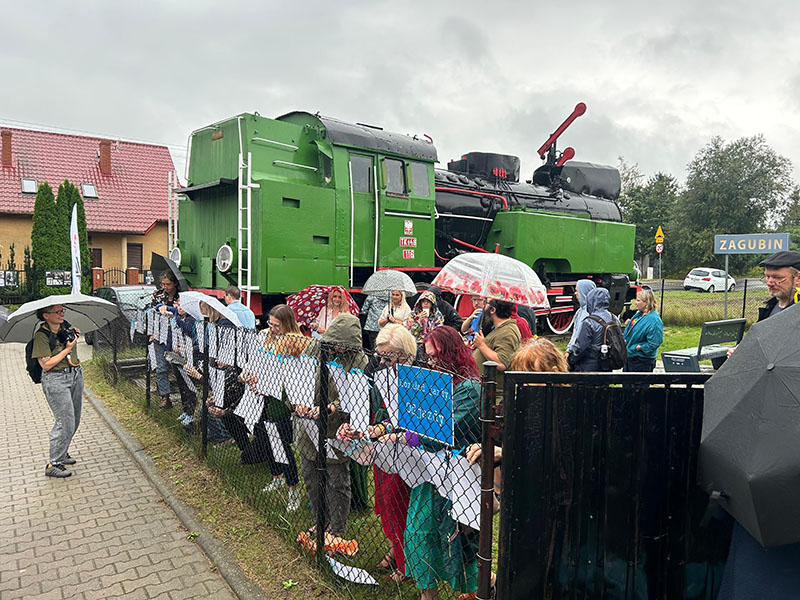
Photo by Agnieszka GrzesiekI can still feel that moment. The poems begin to flutter in the wind, transparent drops falling on them. Anna Stanek, after just a few days, confirms that they are contemplating the autumn sun. But in a few months, they will be covered in frost and snow. Time ago I had the opportunity to visit Łazieniec in February, and the poems were still hanging there. What a joy for the accidental wanderer.
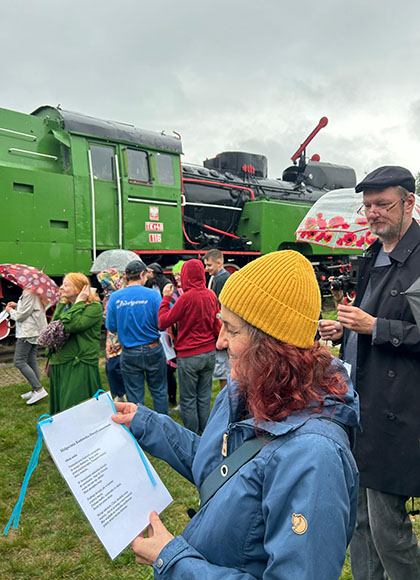
Photo by Agnieszka GrzesiekI meet the poet Małgorzata Wątor as shortly she steps off the train from Gdańsk. We’re talking about her writing in German, Kashubian, and her taste for travel. Along the way, in Aleksandrów Kujawski, I also meet my friend, poet Justyna Paluch, and the “Wholesaler” Poetry Group from Wrocław. – You all know each other here – Aga notices, who came with me from Łódź.

Ola Raczyńska from Wrocław.Photo by Ola GardysiakI run into old friends from previous editions and meet amazing new people. Because poetry is the guide on the “White Locomotive.” In the Book Carriage, I finally get poetry book of Maria Znamierowska “Thirty Simple Words”. It turns out it’s the latest one. I’m impressed by Tomasz Wachnowski’s songs from his record “Dance like Dervishes”. Probably it’s the first time I’ve heard a tango for guitar.
And finally, after all these years of this cozy literary festival, I’m talking to bard and pinter Jerzy Stachura, Edward Stachura’s nephew. His ballads from the record: “Buy yourself a poem” teleport me back to my youth, when I played guitar, and at the same time, they brighten me up in the here and now, even though they’re bringing melancholy.
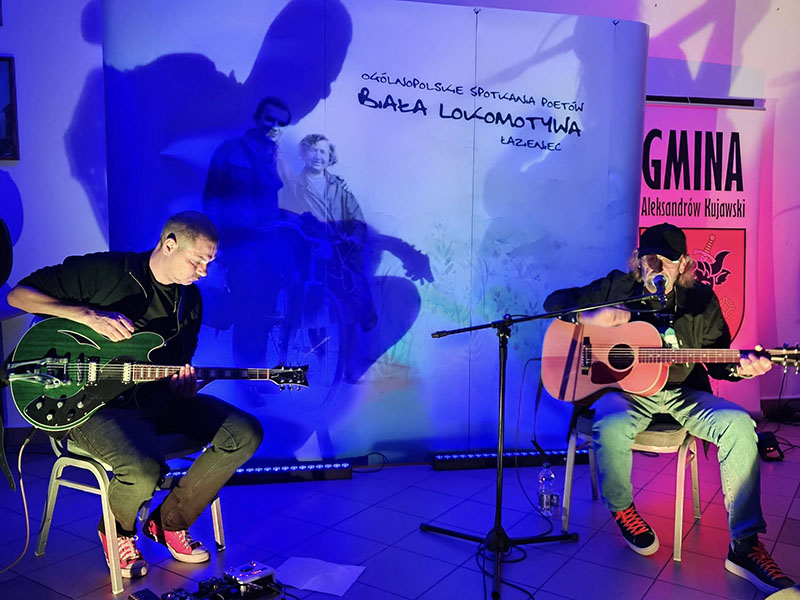
Photo by Anna StanekTobiasz the dog drinks water under a tree. And at night, a ginger cat runs across the street to me so determinedly that I scoop him up in my arms. And I think: How will I transport you to Ireland? I’m moved by existence, by the full moon, by short conversations, by the tall grass in the meadow.
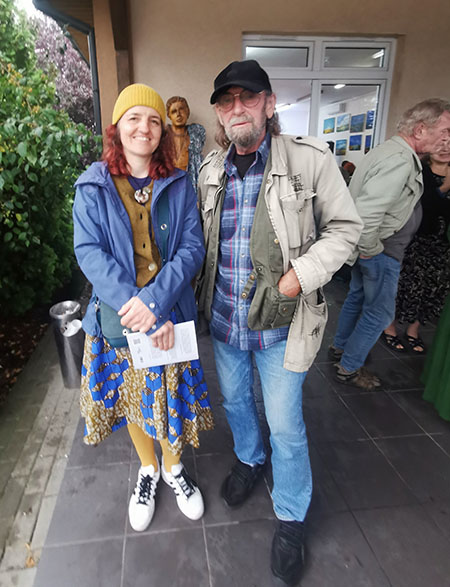
Beata Poczwardowska’s collection “In the Frame of a Cafe” has blank pages. So, they allow to write our own lines between the author’s poems. And each piece takes place in a cafe. I also meet writer and photographer Dariusz Marcinek, whose prose-poetry book “Ascension of the Deer” I often have on hand.
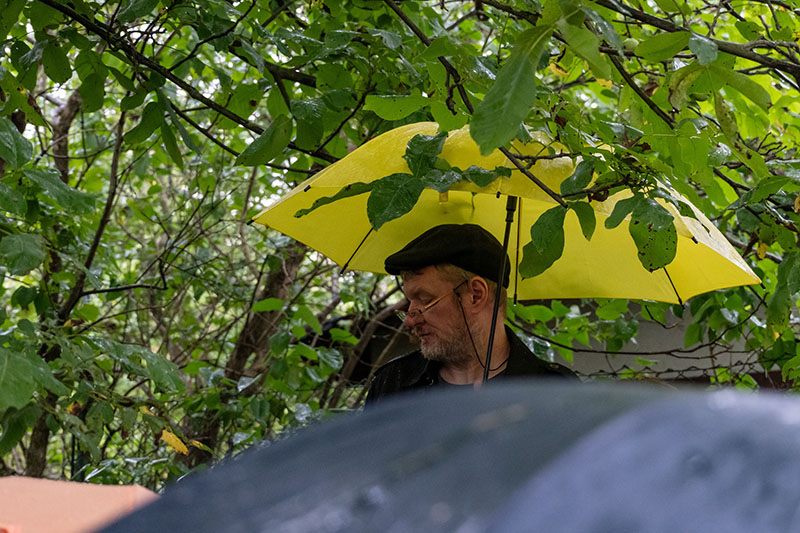
Photo by Ola GardysiakI’m intrigued by the poet and translator Anna Błasiak, who lives in England. In her book of poems, “Rozpustanie / Deliverance” she combines two languages: Polish and English, sometimes even alternating. She does it in a brilliantly poetic way. Ah, I can understand her feeling while living abroad (…) Ania, I hope to meet you and talk more one day.
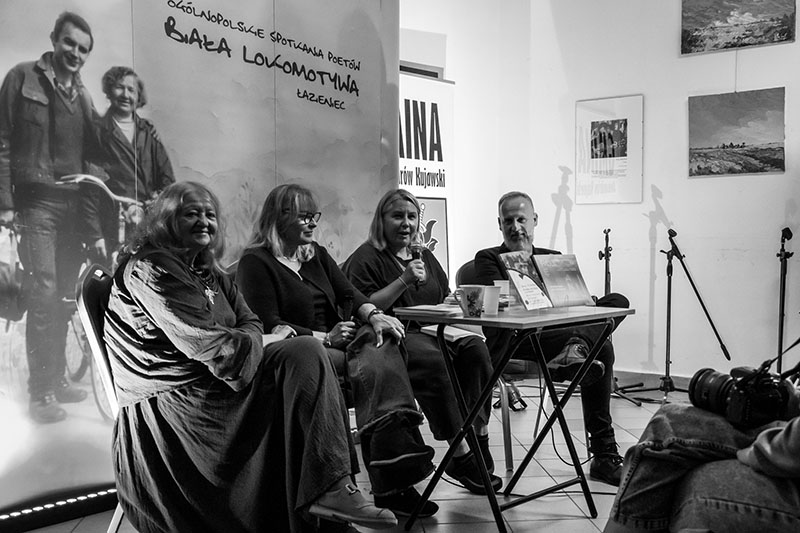
Photo by Ola GardysiakAnd Daria, Adam, and Krzysztof’s story about the alternative theater KRAM ’86, which they founded many years ago as young people, makes me see and feel their journey in my imagination. From town to town, with suitcases full of rags. Moments when they share a scarf or a sweater.
They leave it all to us in their recently published book: “Theatre is a strange, unique theater. The story of the KRAM ’86 Theater in the voices of several actors and a few fans.”
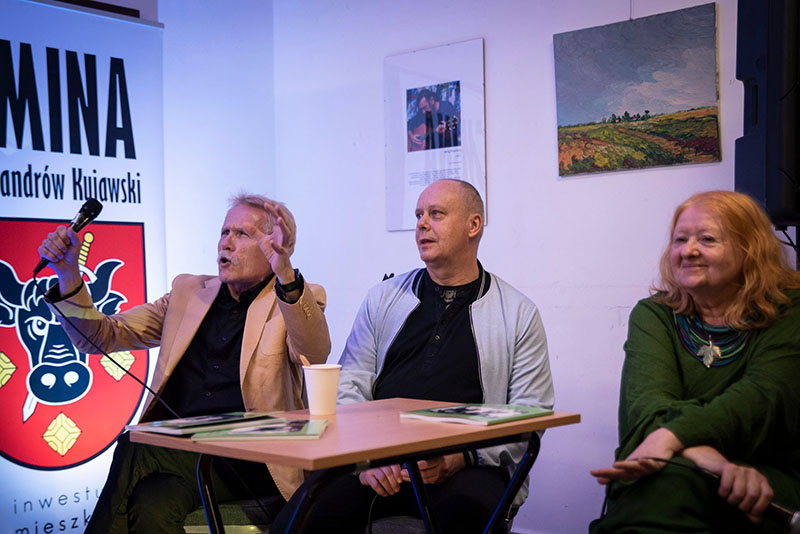
Photo by Anna K. AbramowiczMeanwhile, in Aleksandrów Kujawski, I notice a yellow “E” on a blue background on the wall of a gray tenement building. And I immediately think: “E” for Edward, although it probably refers to the Toruń football team. However, in my memory, it will remain a poetic symbol.
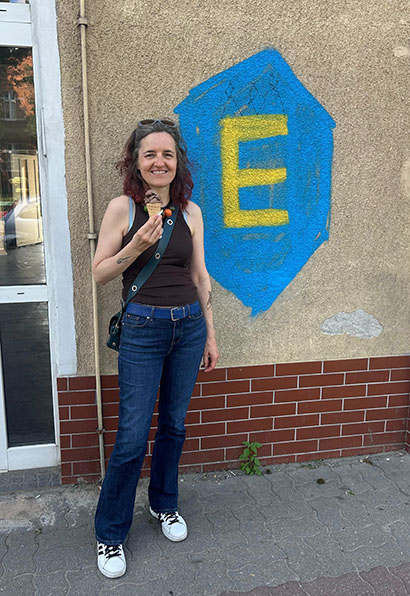
Photo by Agnieszka GrzesiekOn the train back, I write a poem for the poet and translator I’ve just met, Anita Jagodzińska, whose collection “nothing happened” brings me peace on the journey. And in Warsaw, I meet my aunt and read my poems and her chronicles. A manifest banner with a poem for poet Edward Stachura is with us in the café.
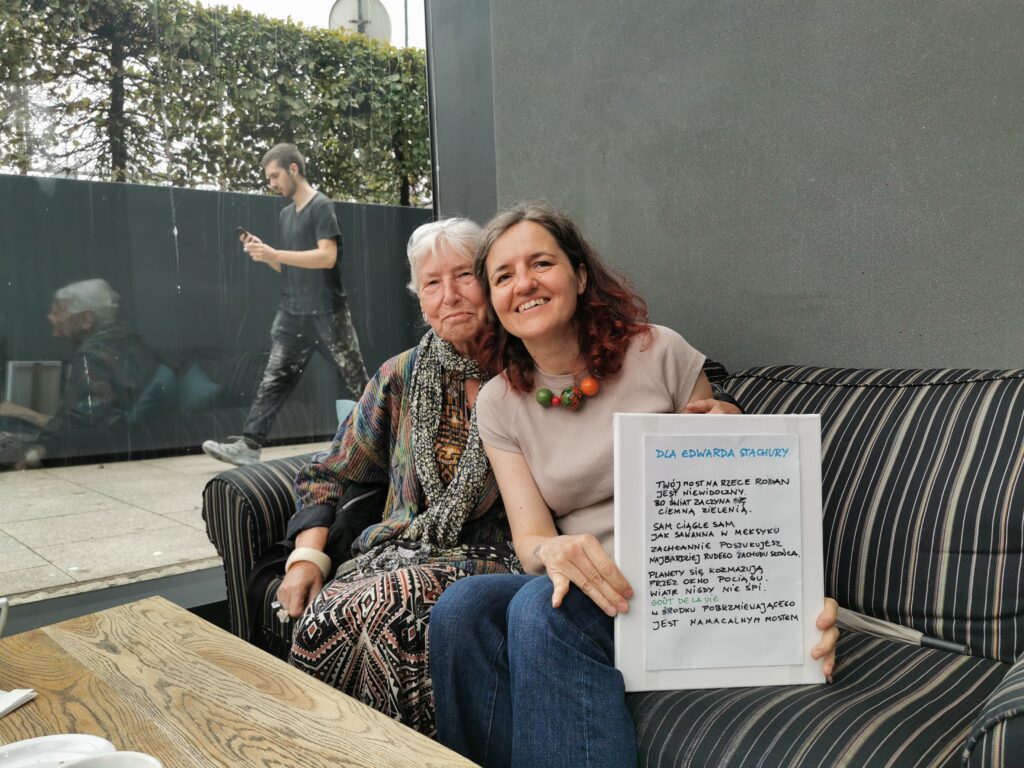
Poetry accompanies me all the way to Galway. At the airport, I happen to chat with a young girl flying to Dublin for the first time and tell her about the “White Locomotive” in Łazieniec. She’s pleasantly surprised. And when I land on the island and take the bus to Galway in autumn darkness, I unexpectedly write a poem for my mother.
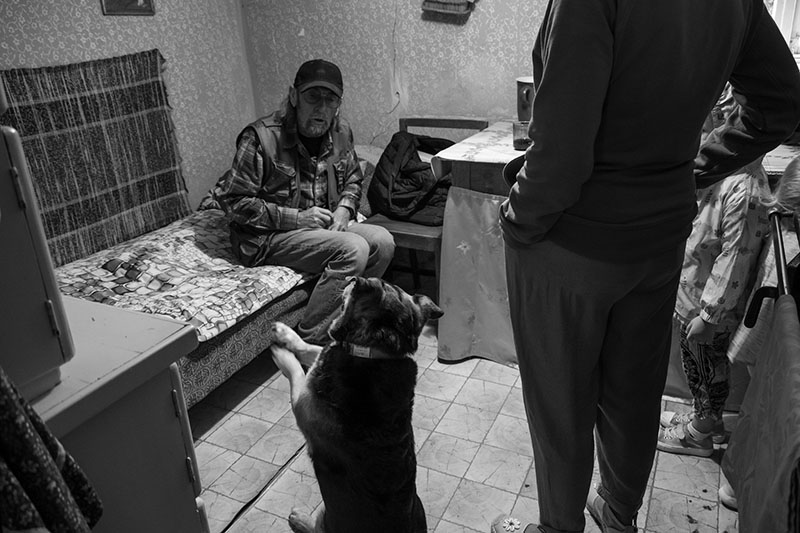
In E.Stachura's family cottage.
Photo by Ola GardysiukLook, there we are, sitting against the trunk of an old pine tree. The day is sunny, and nothing prevents us from recognizing this moment as the beginning of eternity (…)
Fragment of prose-poetry book of Dariusz Marcinek ““Ascension of the Roe Deer”.
This cozy festival of literature “White Locomotive” exits since 24th years and take a place in Łazieniec, each year, on the first weekend of September. There is also space for European Poets. More about “White Locomotive”, here.
Title photo by Anna K. Abramowicz.
